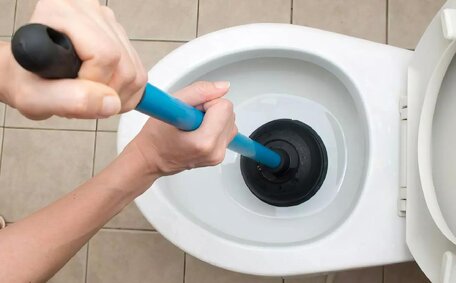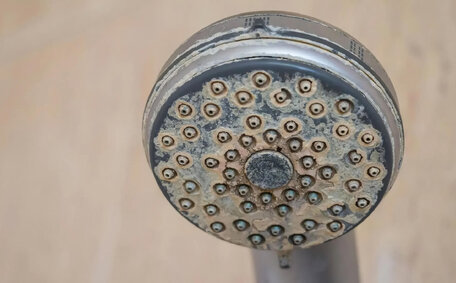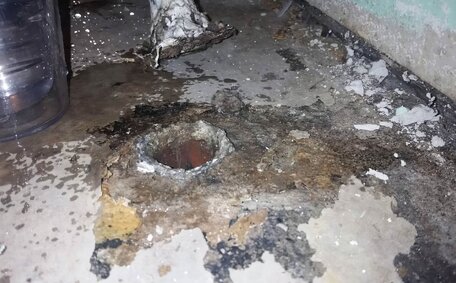How Blocked Drains Can Lead to Flooding
A clogged drain can lead to water buildup and potentially cause flooding both inside and surrounding your home or business. The progression typically goes like this:
Over time, drains and sewer line infrastructure accumulate grease, oil, hair, food particles, and other debris.
Invasive tree roots are among the main causes of blockages in your sewer lines. When your drainage system becomes clogged, they can cause water flow to be impaired. Impaired water flow, over time can cause escalation into pooling and, subsequently, water damage in affected areas.
With nowhere to go, excess water can often back up, and cause flooding and overflow in your sink, tubs, and toilets. Backed-up sewage, a serious health risk, can start discreetly but eventually lead to significant water backflow into your yard. Standing water, regardless of its subtle seepage, can spread and drains can cause major flooding causing property damage in your building, jeopardising materials such as wood and drywall.
A water breach from these areas could lead to compromised integrity of your walls and floors, and indeed, the very foundational structures. As water continues accumulating, with drains backing up, flooding can occur.
Blocked stormwater drains, particularly from heavy rain, which is a frequent culprit of flooding, can cause considerable havoc. Neglected upkeep can compromise environmental health as well as fail to drain away water, especially during downpours, leading to contaminated local water sources.
But blockages in drains can provoke situations that causes flooding of your property if not promptly addressed. Neglected or improper stormwater drains can lead water straight towards your home, and things can quickly escalate to flash floods after heavy rain.
To avoid issues and avert serious problems such as clogged drains, it’s critical to ensure your drains receive regular maintenance. At the first sign of a blockage, contact our team of expert plumbers immediately for drain cleaning and repairs.
Common Causes of Drain Blockages
Understanding what causes blocked drains and recognising how maintenance can help is crucial, given the various common substances and objects involved:
- Grease, oil, and fat - These substances can stubbornly adhere to pipes and frequently cause blockages. As they accumulate, thick blockages form, preventing anything from going down and can cause your pipes to clog.
- Hair - Strands of hair, no matter how few, that inadvertently travel down drain become entangled and create clogs.
- Food - Small scraps of food flushed down your drains slowly build up.
- Tree roots - Root intrusions from shrubbery and trees can cause blocked ruptured pipes.
- Toys, utensils, and household objects - Items such as children’s toys or utensils, sponges, towels which can cause blockage if washed down the drain.
- Mineral deposits - Hard water’s minerals, over time, can cause stubborn coatings inside pipes, leading to blockages.
Even small amounts of these materials can clump together, gradually building up and narrowing the pipe, which reduces its diameter over time. This buildup can slow the drainage to a trickle or even cause a complete stoppage. Eliminating accumulations of grease and oil is essential as they harden inside pipes, creating tough clogs.
Hair and items like towels, over time, can cause formidable tangled blockages within a drain. Tree roots can infiltrate through small cracks, leading to broken pipes as they expand and exert extreme pressure, eventually cracking pipes apart.
The gradual buildup of substances over time can lead to a clogged drain cause if not routinely cleared from your drain.
Our expert plumbers highly recommend having a professional inspect areas near your drain for comprehensive cleaning periodically.
Preventing Blocked Drains and Flooding
Preventing the effects blocked drains have is crucial to avoid flooding disasters. Here are some tips to keep your drainage flowing freely:
- Conduct regular drain maintenance, such as using boiling water or chemical drain cleaners weekly in sinks and pipes to prevent grease and debris buildup. Using drain strainers and screens helps capture small particles, minimising the risk of blockages.
- Install protective measures - Clear your gutters, drain guards, backflow valves, and root shields to protect your drains pipes from blockages that can flood, including the septic tank. Likewise, installing mesh screens over your sink can stop debris from causing blockages.
- Professionally inspect and clean your stormwater drainage - Annually hire a licensed plumber with specialised equipment such as cameras and hydro-jetting to inspect and clean your drains and prevent blockages.
- Promptly fix water leaks - Dripping taps or cracks in your hot water system can lead to flooding and water damage, causing pipe deterioration. Rectify any leaks in your water supply system as soon possible to prevent potential blockages.
- Upgrade your plumbing system - Corroded and cracked pipes are prone to catching debris and roots. Consider replacing outdated drainage.
- Avoid flushing solids - The only things you can realistically use your drains for are human waste and toilet paper. Dispose of other things you can do without, such as persistent waste, in the bin.
Follow these best practices and immediately contact your local plumber if you notice signs of blocked or slow drains. Acting quickly helps nip potential obstructions in the bud before they escalate into burst pipes and catastrophic flooding.
Responding to Blocked Drain Flooding
If you encounter flooding from a blocked drain, it’s crucial to act swiftly to prevent further damage and health risks.
First, assess the location and extent of the flooding. Where is the water coming from and how far has it spread? Take photos and videos as evidence for your insurance company.
Try to contain the flooding by blocking doorways with towels and redirecting water from your water heater away from valuables.
Disconnect any plumbing gas connections and essential utilities to the impacted areas without delay. Submerged outlets present a significant electrocution hazard. Turn off any plumbing gas connections and electrical devices near standing water as they pose significant risks to your health.
Wear rubber boots, gloves, goggles, and protective attire, as the harmful effects of substances lurking in floodwaters pose unseen dangers. Assume floodwaters are unsanitary and might be filled with contaminants that pose health issues.
Contact a 24/7 emergency plumbing service immediately, as water-related emergencies can occur without notice. Professional hydro jetting is necessary to clear obstructions and restore efficient water flow in home drainage systems. Attempting to unclog the drain yourself with chemical cleaners is not advised.
Professionals utilise more than just standard tools; high-powered jet sprayers are employed to scour obstructions away, guaranteeing unimpeded water flow. Plumbers also utilize drain cameras to accurately identify the location and cause of clogs for thorough cleaning.
For extensive drain pipes repairs like pipe replacement, an emergency plumber can stop active leaks and repair any underlying issues to prevent additional flooding. They have the expertise to properly diagnose issues and enact solutions.
You can take action to pump out any standing water to lower flood levels. You may need to call water restoration specialists to remove all remaining moisture and sanitise areas.
Submit an insurance claim to cover flood-related damages. Document all repair and remediation costs. Be vigilant as, In some cases, flooding from drain backups may not be included in your specific policy and can become a breeding ground for additional issues.
After addressing the immediate flooding crisis, invest in preventative drain maintenance. Schedule professional drain cleaning regularly to keep your plumbing obstruction-free.
Installing backflow valves and water sensors can also help prevent flooding from blocked drains. Take all precautions to avoid repeat incidents.






